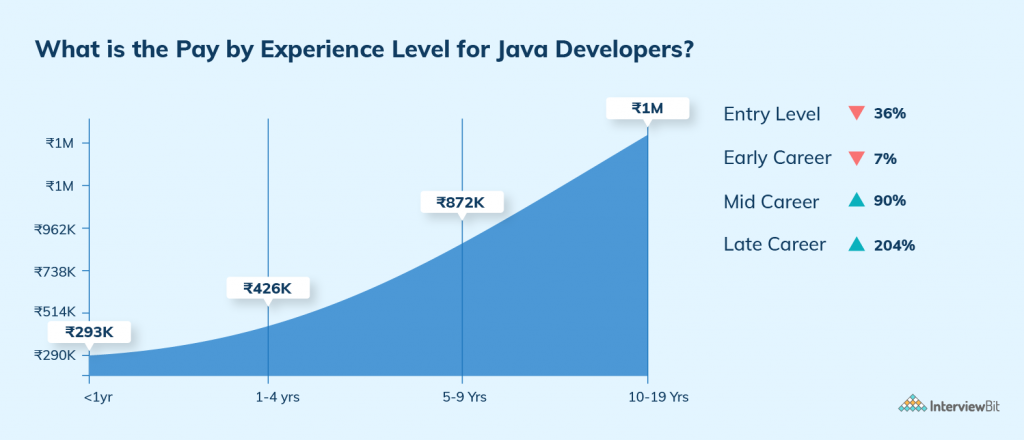How Much Does a Java Developer Make? Brewing Up Success in the Tech World
Java developers are in high demand, crafting the essential code behind countless applications, websites, and software programs. But with this demand comes the natural question: how much does a Java developer earn? The answer, like a good cup of coffee, is a blend of several factors.
The Base Salary Brew
On average, Java developers in the United States can expect to earn an annual salary of around $103,296 (as of March 2024) [Salary.com]. However, this is just the starting point. Salaries can vary significantly depending on experience, location, and specific skillset.
Experience Adds the Flavor
Just like a seasoned barista can create a more complex and delicious coffee, experience significantly impacts a Java developer's salary. Entry-level developers, with 1-3 years under their belt, might start around $72,530. As they gain expertise, hone their skills, and take on more responsibility, salaries can climb steadily. Senior developers, with a minimum of 5 years of experience, can command an average of $122,224 [Codecademy].
Location: A Global Market for Coffee (and Code)
The cost of living and economic factors also play a role. Java developers in major tech hubs like San Francisco or New York can expect higher salaries compared to those in smaller towns. Even globally, salaries differ. While a Java developer in Germany might earn around €62,500 per year, their counterpart in Bangladesh might see a median annual salary of $49,632 [GermanTechJobs, Plane].
Skills as the Secret Ingredient
Beyond experience, specific skills can elevate a Java developer's earning potential. Expertise in frameworks like Spring or expertise in cloud computing platforms like AWS can make you a highly sought-after commodity. Additional certifications can also add value to your resume.
Beyond the Salary: A Full-Bean Package
It's important to remember that salary is just one part of the compensation picture. Many Java developer positions offer benefits packages that include health insurance, paid time off, and retirement plans.
Brewing Up Your Future
So, if you're considering a career as a Java developer, the financial rewards can be quite attractive, especially with experience and skill development. The path to becoming a Java developer involves education (a computer science degree or bootcamp) and continuous learning to stay up-to-date with the latest technologies. With dedication and the right skills, you can carve out a successful and lucrative career in the ever-evolving world of Java development.


